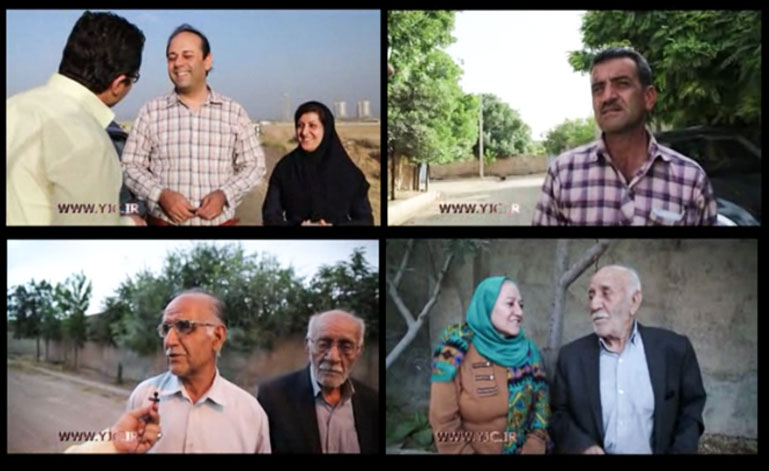Residents of Zargar, a village only 100 km away from Tehran, are both Iranian and not! They have the looks of both Aryans and the Vikings! They are tall, and of course hospitable.
These villagers are Shiite Muslims who either work on farms or breed livestock. What distinguishes them from other Iranians is that their mother tongue is Romani, also known as Zargari by locals.
The origin of their language is more like a myth. These villagers themselves do not know to which part of the world they originally belong, what has brought them to Iran or how they have ended up being Shiite farmers speaking a different language in the heart of Farsi-speaking Iran.
The elderly remember an old man living in their village in the past who kept a record of his accounts in Russian. But after he passed away, Russian slipped into oblivion, and now villagers speak Romani and write in Latin.
A few years ago, some educated residents of the village posted a message in Romani on the web and appealed to those familiar with the language to visit Iran.
A few months later, three visitors from France and Britain traveled to Zargar. They were excited to find individuals sharing the same language with them in Iran.
The three Europeans were surprised about why unlike the 18,000 Roma people based in Europe the Iranian Roma did not have any institute to represent them or why they did not take part in annual Roma gatherings in Turkey.
There are different stories as to how these villagers have ended up in Iran. One narrative says that Roma people moved to Iran centuries ago from the north. Another suggests that they were originally Iranian and were recruited as soldiers for Shah Abbas’ Qizilbash army because of their bravery.
Still another says some 200 Roma were captured during a war between Iran and the Roman Empire and were pardoned by the Persian king. Later they took up residence in an area in the vicinity of what is Qazvin today.
Although these villagers are said to originally hail from other countries, they are in love with Iran and identify themselves as Iranian only.
